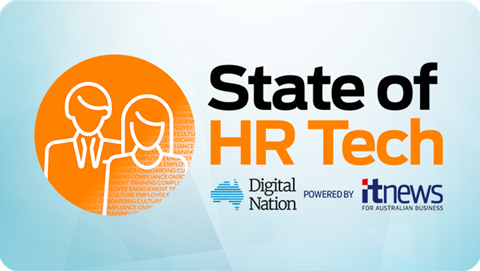Company cultures are observational, not aspirational, according to Netflix co-founder and former CEO, Marc Randolph.
Randolph spoke at the Global Entrepreneurship Congress hosted in Riyadh, Saudi Arabia this week about building Netflix’s corporate culture, which has long been praised for its unique attitude to trust and freedom.
But culture cannot be designed, he said. It has to be led through actions and behaviour.
“People think, 'I have to have a culture. Let's get together, let's design culture'. That's not what culture is. Culture is how you the founder and the founding team behave,” said Randolph.
“It's how you make decisions, treat employees, treat your customers, and how you treat each other. Everyone watches that, and models that behaviour. That’s what builds a company culture.”
Trust and freedom
One unusual element of the Netflix business model is that spending guidelines or vacation policies are non-existent. Instead, employees are expected to show good judgement, he said.
“The Netflix experiment was, what happens if we build a company culture for people with good judgment? What if there were no rules at all?” he asks.
“Every policy is the same. Use your best judgment.”
Jeff Hoffman, chairman of the board for the Global Entrepreneurship Network, interviewing Randolph in his keynote noted, “Instead of building in all these fixes, like approvals and budgets and status reports to fix people you can't trust, why don't you just hire people you trust?”
While this wide scope works in an environment made up of employees with good judgement, Randolph cautioned that it doesn’t suit everyone.
“I hate to tell you this, there’s a dark side to this too. You're not going to get it right all the time. To make a culture like that work requires, if someone doesn't have good judgment, they can't work there,” he said.
“It only works if you have a certain calibre of people, but for the people it works with, it works phenomenally well.”
This culture of freedom and trust is pertinent in a world of hybrid work, where managers cannot physically see their employees at work.
Randolph relayed a conversation with an employee, pre-Covid, who had asked to change his working arrangements in order to work from another city for two days of the week.
His response to the employee was, “If you're asking me if it's okay for you to work from San Diego, I don't care. You can work on the moon if you want, it doesn't make a difference to me. If you're asking if I'm willing to lower my standards of what's expected of you? Well, that's an easy one. No.”
With freedom comes responsibility and Randolph believes that if employees can meet their expected responsibilities, then freedom can be a powerful tool.
“It's way more powerful than, believe it or not, how much you pay someone. It's way better than putting in a fireman pole, or kombucha on tap or beanbag chairs, or nap pods or any other crap that companies seem to think is what it takes to attract and retain great talent.”

Editor's Note: Velvet-Belle Templeman travelled to Riyadh, Saudi Arabia as a guest of MCI Australia to report on the Global Entrepreneurship Congress.





_(28).jpg&h=140&w=231&c=1&s=0)





 iTnews Executive Retreat - Security Leaders Edition
iTnews Executive Retreat - Security Leaders Edition
 iTnews Benchmark Awards 2026
iTnews Benchmark Awards 2026
 iTnews Cloud Covered Breakfast Summit
iTnews Cloud Covered Breakfast Summit
 The 2026 iAwards
The 2026 iAwards












_(1).jpg&h=140&w=231&c=1&s=0)



